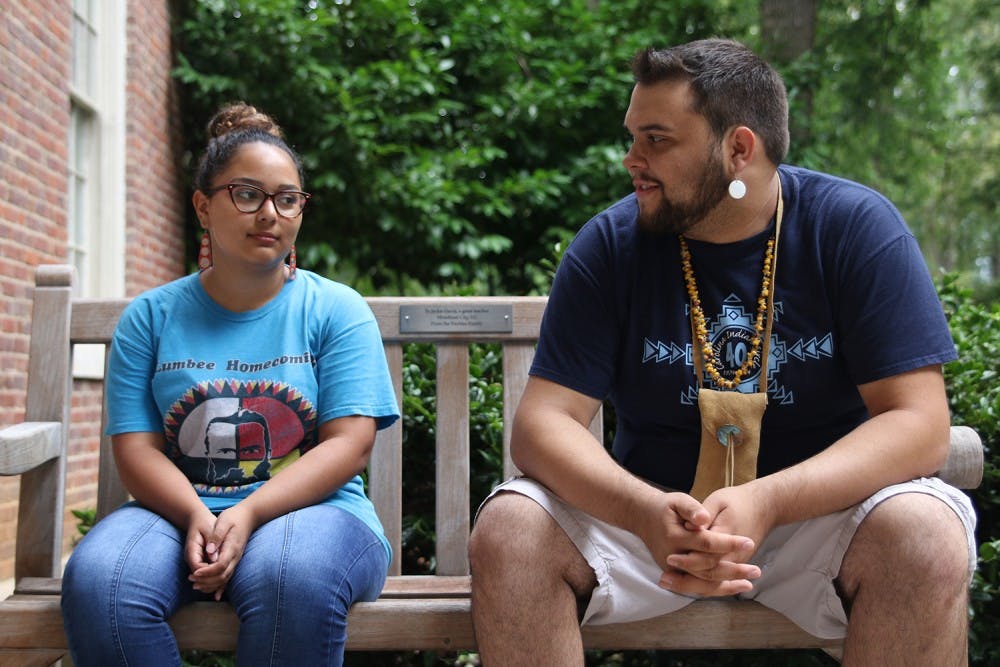While the Lumbee Act granted recognition to the Lumbee people as American Indians, it did not designate them as a formal tribe, making them ineligible for federal benefits.
“The possibility of a political relationship with the federal government was foreclosed with this 1956 act,” Lowery said. “It’s a piece of legislation that we’ve been fighting to overturn or amend ever since then.”
In the 1970s, the U.S. Bureau of Indian Affairs established avenues for federal recognition — but an underfunded budget and strict criteria made the process difficult, said Keith Richotte Jr., a UNC professor who specializes in American Indian law and policy.
“It’s a very slow, tedious, cumbersome process that often results in disappointment,” he said.
After attempts of gaining recognition through the Bureau of Indian Affairs were unsuccessful, tribal leaders began lobbying Congress for federal recognition.
Politics
Lumbee recognition has been historically resisted by the Eastern Band of Cherokee Indians — the only federally recognized tribe in North Carolina — which has questioned the legitimacy of the Lumbee tribe’s Indian heritage.
The Eastern Branch of Cherokee Indians did not respond to emails requesting comment, but Lowery said its leaders are concerned about losing Bureau of Indian Affairs resources.
“There’s a long-standing fear, one that the BIA has nurtured, that when you bring in a huge tribe, like the Lumbee ... it’s going to cut the budget for every other tribe,” she said.
Burr’s Senate bill also allows the Lumbee tribe to use land trusts to build casinos, which Lowery said is a controversial topic within the Lumbee tribe and the larger American Indian community.
She said many in Congress are ideologically opposed to the government granting sovereignty to additional tribes.
To get the day's news and headlines in your inbox each morning, sign up for our email newsletters.
“They don’t want to see any more Indians,” she said.
Elena Jacobs-Polanco, a UNC sophomore from Greensboro and a member of the Lumbee tribe, said the politics of federal recognition are hard to stomach.
“It’s frustrating because Robeson County is one of the most poverty-stricken counties in the nation,” she said. “Funding like that would be very beneficial.”
Impact
Over 50,000 members of the Lumbee tribe call Robeson home. The county’s poverty rates are more than twice the national average of 13.5 percent, and a third of its American Indian residents live in poverty.
Federal recognition would allow the Lumbee tribe access to health care, education, housing and child care benefits, which Amy Locklear Hertel, director of UNC’s American Indian Center, said would allow the Lumbee tribe to provide needed services and support to its members.
The series of failed bills and near misses has been frustrating, said John Lowery, a UNC graduate student in the School of Government and a former member of the Lumbee Tribal Council.
“We have so many elders who have passed away who never got to see this fulfilled,” he said. “It is very, very frustrating and it is something that I hope that the next generation doesn’t have to deal with.”
Ryan Dial-Stanley, a UNC first-year from Greensboro and member of the Lumbee tribe, said he grew up hearing about federal recognition a lot.
He said people sometimes associate full recognition with tribal authenticity — but the fact that the Lumbee isn’t recognized doesn’t change his tribal identity.
“Sometimes it’s a political issue,” he said. “But we’ve always been the same Indian people.”
state@dailytarheel.com




